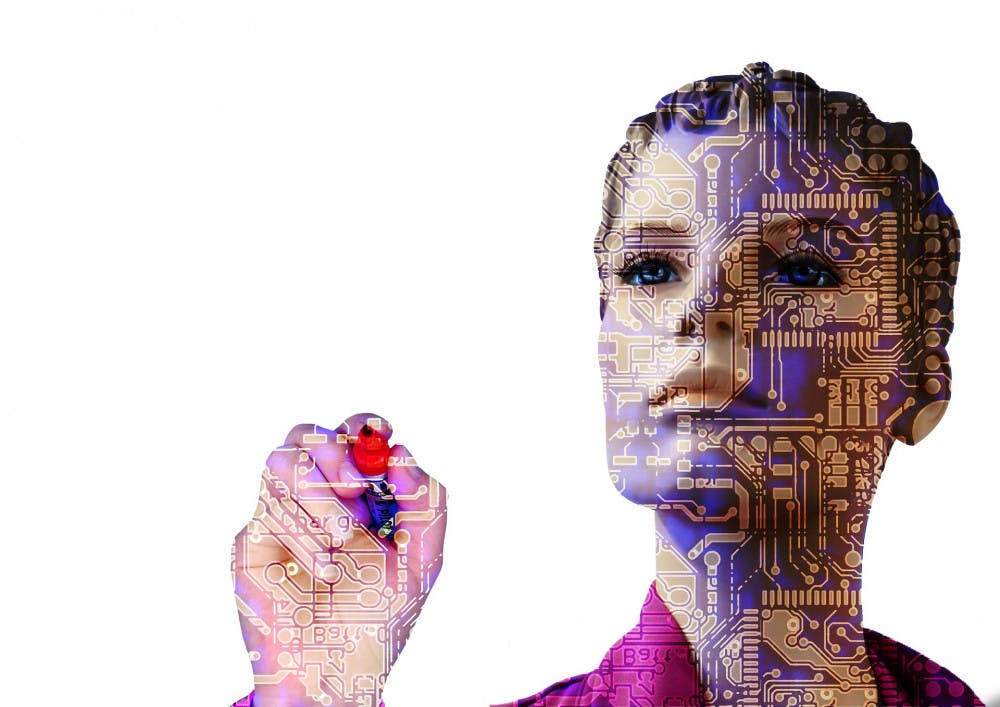As new technology develops, there is a rising consensus among prominent scientists that artificial intelligence could spell the end of the human race. Although this belief is ubiquitous, it is not necessarily true. The reality is that there are a lot of assumptions and implications generated from such a belief.
You should not believe that artificial intelligence is dangerous simply because prominent scientists believe so.
[caption id="attachment_20227" align="aligncenter" width="838"] Many scienctists claim that artificial intelligence could be the end of the human race.
Many scienctists claim that artificial intelligence could be the end of the human race.
Photo via Pixabay/Geralt[/caption]
We know that artificial intelligence will keep growing in the future by our emerging technological revolution. You can see this from a generalization of Moore’s law, which states that technology tends to develop exponentially. Although Moore’s law may not be an exact exponential growth, technology is still developing at a relatively fast rate.
There would be only a small change for workers in workplaces with automation. The jobs would simply take a different form, instead of usual laborers; we would need software engineers to monitor the automation process. A projection shows that data science, analyst and other technical jobs will increase substantially within the next few years.
Additionally, more and more people in the younger generations are learning how to code. Since these people learn how to code early on, they will provide a generation capable of working in our automated world.
Some experts may say that due to machine learning, artificial intelligence can mimic human behavior. Although artificial intelligence can potentially mimic human behavior, it does not hold the same inherent behavior that humans have.
For instance, it is possible for artificial intelligence to learn how to react to certain phrases, and thus mimic properties of humans, but it is not possible for artificial intelligence to have an understanding of what the emotion really means.
Some people may argue that artificial intelligence has seemingly infinite knowledge. The infinitude of knowledge is simply an illusion. Artificial intelligence has a limited knowledge capacity, since it is limited by computational power. In addition, even if artificial intelligence has encyclopedic knowledge, humans have something much more powerful, called common sense.
Therefore, artificial intelligence is limited and can only mimic human behaviors. In other words, since there will always be a limitation on artificial intelligence, our jobs are safe and the advent of such technology is inevitable, but we still shouldn’t worry about an army of robots any time soon.
Josh Steier is a senior mathematics major from Huntington, NY. He can be reached at joshua.steier@student.shu.edu.





